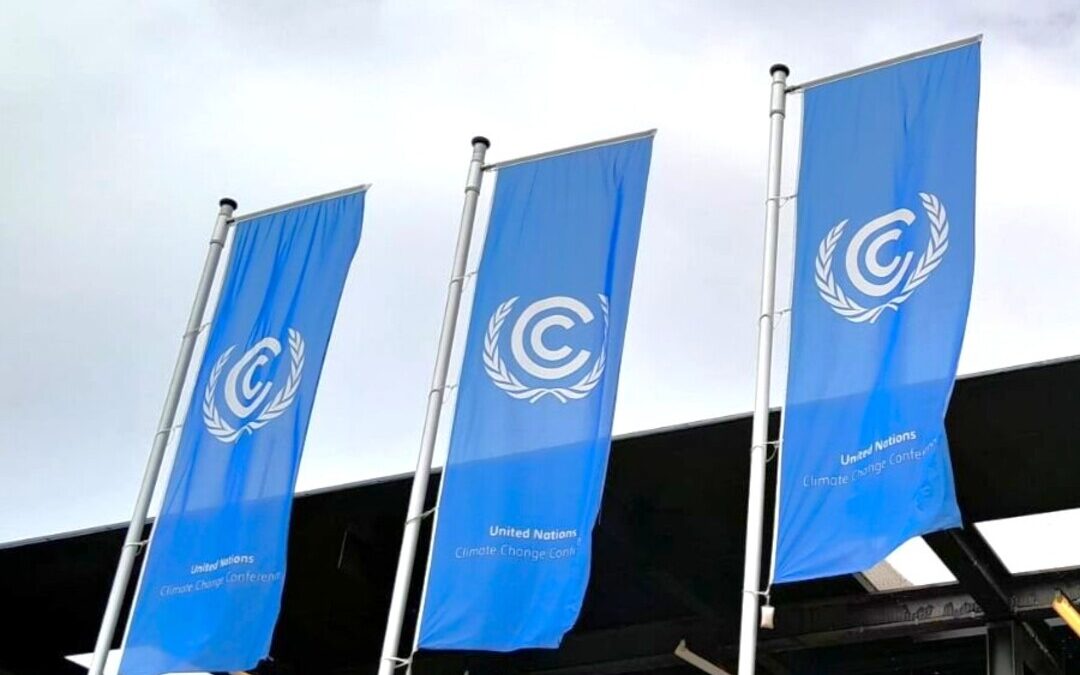FIDH Presses for Human Rights Focus as Bonn Talks Set Stage for COP30
FIDH urges governments at Bonn climate talks to prioritize justice, reparations and defender protection ahead of COP30.
The International Federation for Human Rights, referred to in French as Fédération Internationale pour les Droits Humains, or FIDH, urged governments to prioritize human rights in their climate strategies as global climate negotiations began in Bonn on Monday.
FIDH is attending as an official observer of the 62nd sessions of the Subsidiary Bodies of the United Nations Framework Convention on Climate Change for the first time, and it called for action on three urgent priorities: a just transition rooted in human rights, reparations for climate-related harm, and protection for environmental human rights defenders.
Rights-Based Just Transition
The Paris-based nongovernmental organization and its partners in the Human Rights and Climate Change Working Group emphasized that the global shift away from fossil fuels must align with obligations under international human rights law.
“A just transition must be grounded in rights to equality, decent work, and a clean and healthy environment,” the group said in a briefing note released ahead of the session.
The note emphasized that discussions under the UNFCCC’s Just Transition Work Programme, which have been deadlocked since UN climate talks in Azerbaijan last year, are a critical test for the credibility of climate commitments in 2025.
The HRCC-WG is calling for the creation of a “Belem Action Mechanism” to operationalize the just transition and ensure broad participation from trade unions, Indigenous Peoples and affected communities.
Remedy and Reparations for Climate Harm
Citing growing support in international law, FIDH called for immediate steps to ensure climate reparations for communities suffering loss and damage, particularly in developing nations.
“Global North countries with high historical emissions must address their legal and moral responsibilities,” said the briefing note, referencing recent advisory proceedings at the International Court of Justice and other international tribunals.
The HRCC-WG advocates for a human rights-based redesign of the Loss and Damage Fund to deliver direct, community-led compensation mechanisms.
Protecting Those on the Front Lines
FIDH raised an alarm about increasing violence and repression against environmental defenders, particularly in the Global South. Nearly 1,900 ecological defenders have been killed worldwide since 2012, according to civil society reports cited by the group.
“The protection of environmental human rights defenders is not only a moral imperative — it is essential to ensuring climate justice,” FIDH said, calling for a dedicated negotiation stream under the UNFCCC to formalize their role and safety.
Women defenders, in particular, face compounded risks including gender-based violence and displacement. The HRCC-WG pushed for these issues to be addressed in the new Gender Action Plan, due for adoption this year.
No More “Dangerous Distractions”
FIDH also warned against over-reliance on what it termed “dangerous distractions” — unproven technologies, such as carbon capture and carbon markets, which risk delaying meaningful emissions cuts and violating community rights.
“These false solutions exacerbate land conflicts and human rights abuses,” the HRCC-WG briefing said. Instead, it advocated for a rapid, fair, and fully funded phaseout of fossil fuels, particularly by historically high-emitting countries.
Rising Stakes Ahead of COP30
This year is seen as a critical juncture, with nations due to submit new Nationally Determined Contributions under the Paris Agreement. FIDH emphasized that these climate plans must be developed through inclusive and participatory processes that integrate human rights obligations.
The UN climate talks, scheduled to take place in Belém, Brazil, next year, will be the first to be held in the Amazon region. Indigenous leaders have called for a ban on new oil and gas projects in the rainforest, increasing the pressure on negotiators to deliver outcomes that reflect the voices of frontline communities.
Civic Space and Solidarity with Palestine
The HRCC-WG also highlighted shrinking civic space in climate negotiations, particularly for Palestinian advocates and their allies. The group called on Germany, as host, to guarantee freedom of expression and peaceful assembly throughout SB62.
“The destruction in Gaza is not only a humanitarian catastrophe—it is ecocide,” said the briefing, which labeled the ongoing assault a form of environmental and climate harm.
FIDH concluded that only a human rights-based approach can deliver the speed, scale and equity required to avert climate breakdown.
“The UN climate regime will only be effective if it acts in concert with the broader international system, including legal obligations under human rights law,” the organization stated.
SB62 runs through June 27 and is expected to shape the agenda for COP30 in November.
Nirmal Menon
Related posts

Subscribe
Error: Contact form not found.


